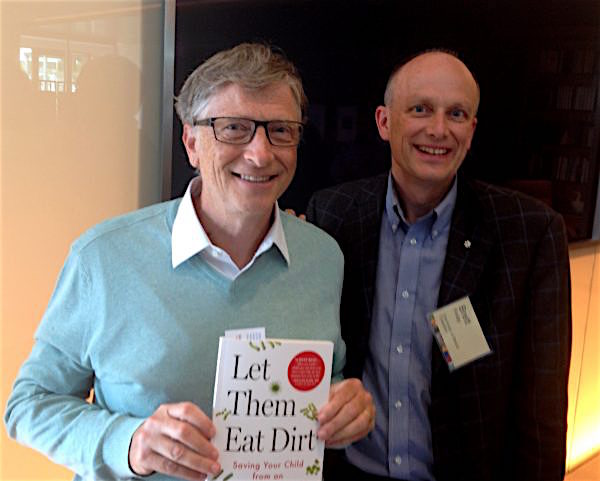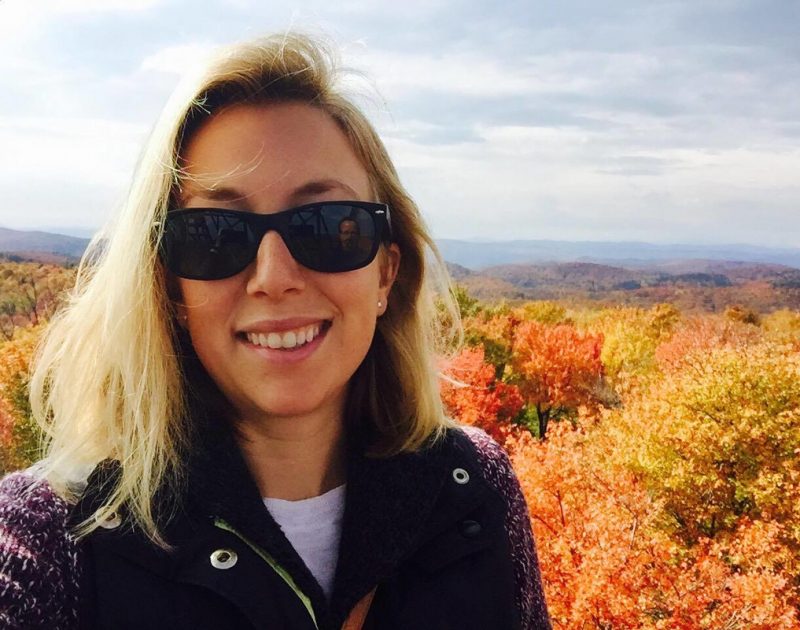#545 Microbes good and bad
May 06th, 2019

The Whole-Body Microbiome: How to Harness Microbes — Inside and Out — for Lifelong Health
by B. Brett Finlay and Jessica M. Finlay
Madeira Park: Douglas & McIntyre 2019
$26.95 / 9781771622202
Reviewed by Sandi Ratch
*
 Most of us go through our daily lives not realizing that we have an army of microbe helpers that allow us to survive and thrive.
Most of us go through our daily lives not realizing that we have an army of microbe helpers that allow us to survive and thrive.
Microbes are both good and bad: the bad ones will kill us if they get out of control, and without the good ones we would succumb to some sort of infection.
If we had no microbes, we’d be fine only if we lived in a bubble, not in the real world.
So how do we allow the good microbes to help us, while keeping the bad ones in check?
The Whole-Body Microbiome, by Brett Finlay and Jessica Finlay, summarizes studies concerning how microbes in and on our bodies help us live our daily lives, and how, if they are not thriving, our health can be greatly affected.
For decades now we have all understood that the gut is full of microbes that can both help and potentially hurt us (Acidophilus is good; C. difficile is bad). Many people have found relief for illnesses like Irritable Bowel Syndrome in the form of a probiotic capsule. But this book shows us that microbes affect all parts of our bodies, not just the gut.

Queen’s University graduate Jessica Finlay of the University of Minnesota, specialist in health and medical geography
The authors travel, chapter by chapter, through the human body discussing how microbes help create health and disease. The first fact that jumped out at me was that there are as many bacterial cells in the body as human cells. Think about that for a second. Half of the cells that help us live, and that are in and on our bodies, are bacterial. How can that many active cells be with us and not affect our health?
All parts of the body are in touch with microbes — even the deepest parts of our lungs (a place only recently believed to be bacteria free). From the brain to the heart and lungs, from the digestive system to the skeleton, muscles, and skin, studies on all areas are summarized here. Illnesses and disorders as varied as obesity, inflammation, multiple sclerosis, kidney stones, autoimmune diseases, and cancer are discussed with regard to the microbiome.
Having a 15-year-old son at home, I was quite struck by the discussion in The Whole-Body Microbiome about how Cutibacterium acnes on the skin helps to fight acne.
And having a life-long obsession with oral health, I found it good reinforcement to read that because of oral bacteria, “[I]ndividuals who do not brush their teeth daily have a 22 to 65 percent greater risk of developing dementia than those who brush their teeth three times a day!”
Brett Finlay received the Order of British Columbia in 2007 for developing three prototype vaccines in response to the SARS outbreak of 2002-03
Our understanding of how certain interactions occur is changing with new research, for example into the links between cardiovascular disease (CVD) and red meat. It’s not the meat or the fat (and certainly not the cholesterol in the meat) so much as the microbes in the meat that seem to be the culprit:
When you eat red meat, the microbiota in the meat itself convert components of meat into specific compounds … the liver then converts these compounds into a derivative compound … which then causes plaque accumulation and CVD. Without red meat and its accompanying microbes, these compounds are not made, which drastically reduces the incidence of CVD and stroke (p. 57).
With new information like this, our approach to health will certainly be changing drastically over the coming decades.
Since this is a relatively new field of study, a lot of the information in this book is preliminary. Most of the studies referenced have been done on mice or small numbers of people, but the preliminary results point to the need for further research and suggest changes that can make a difference in your health.
The main changes the authors recommend might sound familiar:
- Establish and maintain a healthy diet — yo-yo dieting does not work, partly because the microbiome has a memory and tries to get you back to your former stasis.
- Do your research before committing to a probiotic — there are some good ones for certain conditions, but there are a lot of useless products out there as well. Keep an eye out in the future for better probiotics.
- Consume different kinds of fibre (prebiotics).
- Don’t take antibiotics unless you need to — get medical tests to make sure you have a bacterial infection that could benefit from the right antibiotic. Also, use probiotics, prebiotics, and diet to help.
The Whole Body Microbiome is a revealing and interesting read, written for the general public and accessible to all. This up-and-coming scientific discipline of microbe management could help us all in the future. Let’s just hope it doesn’t unleash some mysterious and undesirable Kraken!
*
Sandra Ratch is a writer and heritage consultant with a Masters Degree in Archaeology from Simon Fraser University and over 25 years of experience in the heritage field. She has been interested in health issues since her childhood in the rapidly urbanizing Okanagan Valley. Having spent most of her life in British Columbia, she now lives in Wetaskiwin, Alberta.
*
The Ormsby Review. More Books. More Reviews. More Often.
Editor/Designer/Writer: Richard Mackie
Publisher/Writer: Alan Twigg
The Ormsby Review is a journal service for serious coverage of B.C. books and authors, hosted by Simon Fraser University. The Advisory Board consists of Jean Barman, Robin Fisher, Cole Harris, Wade Davis, Hugh Johnston, Patricia Roy, David Stouck, and Graeme Wynn. Scholarly Patron: SFU Graduate Liberal Studies. Honorary Patron: Yosef Wosk. Provincial Government Patron since September 2018: Creative BC
“Only connect.” – E.M. Forster

Brett Finlay with Bill Gates and previous book, Let Them Eat Dirt (Greystone: 2016), co-authored by Finlay and Marie-Claire Arrieta





Leave a Reply